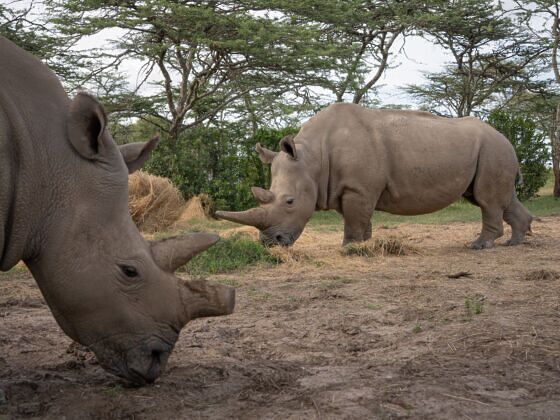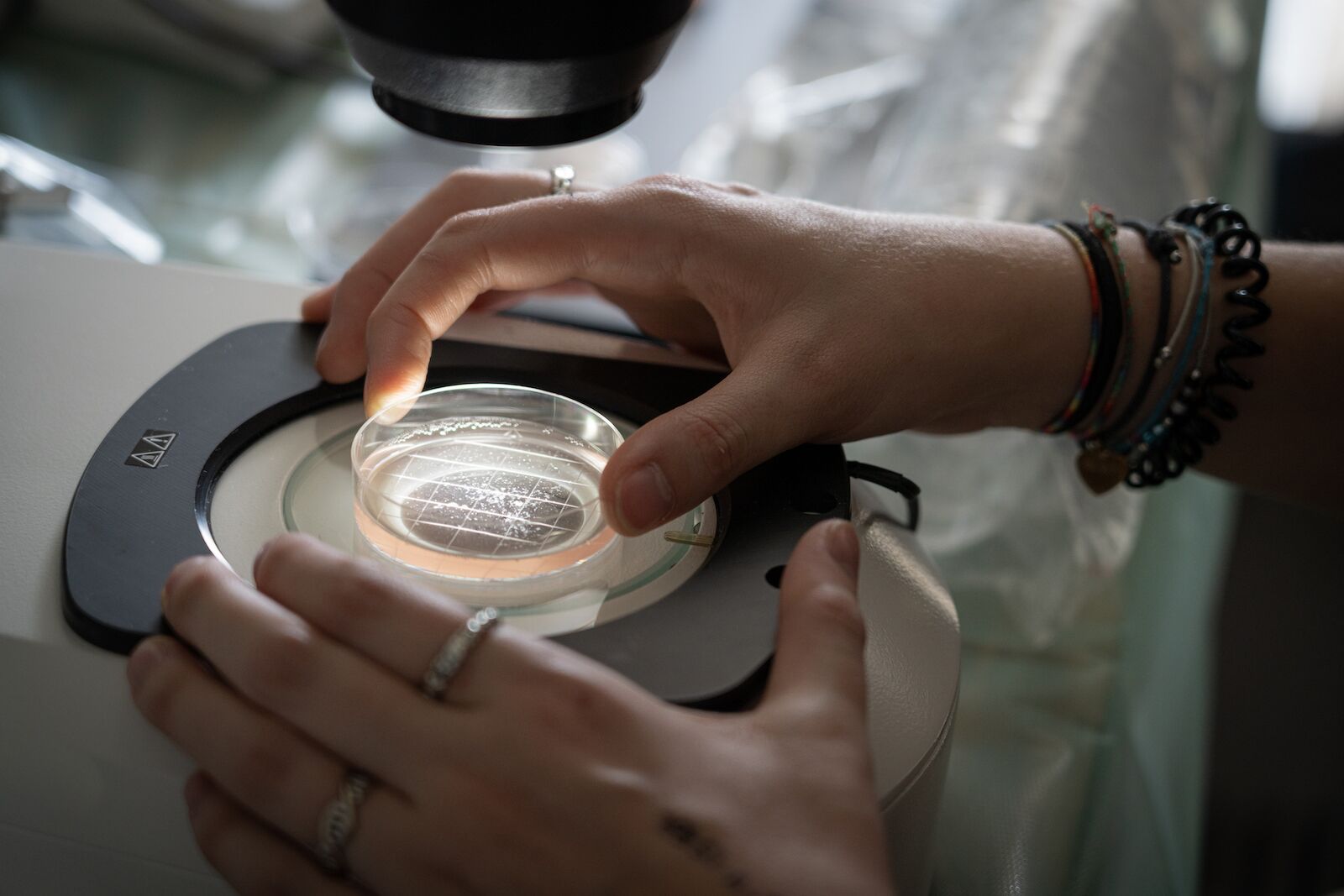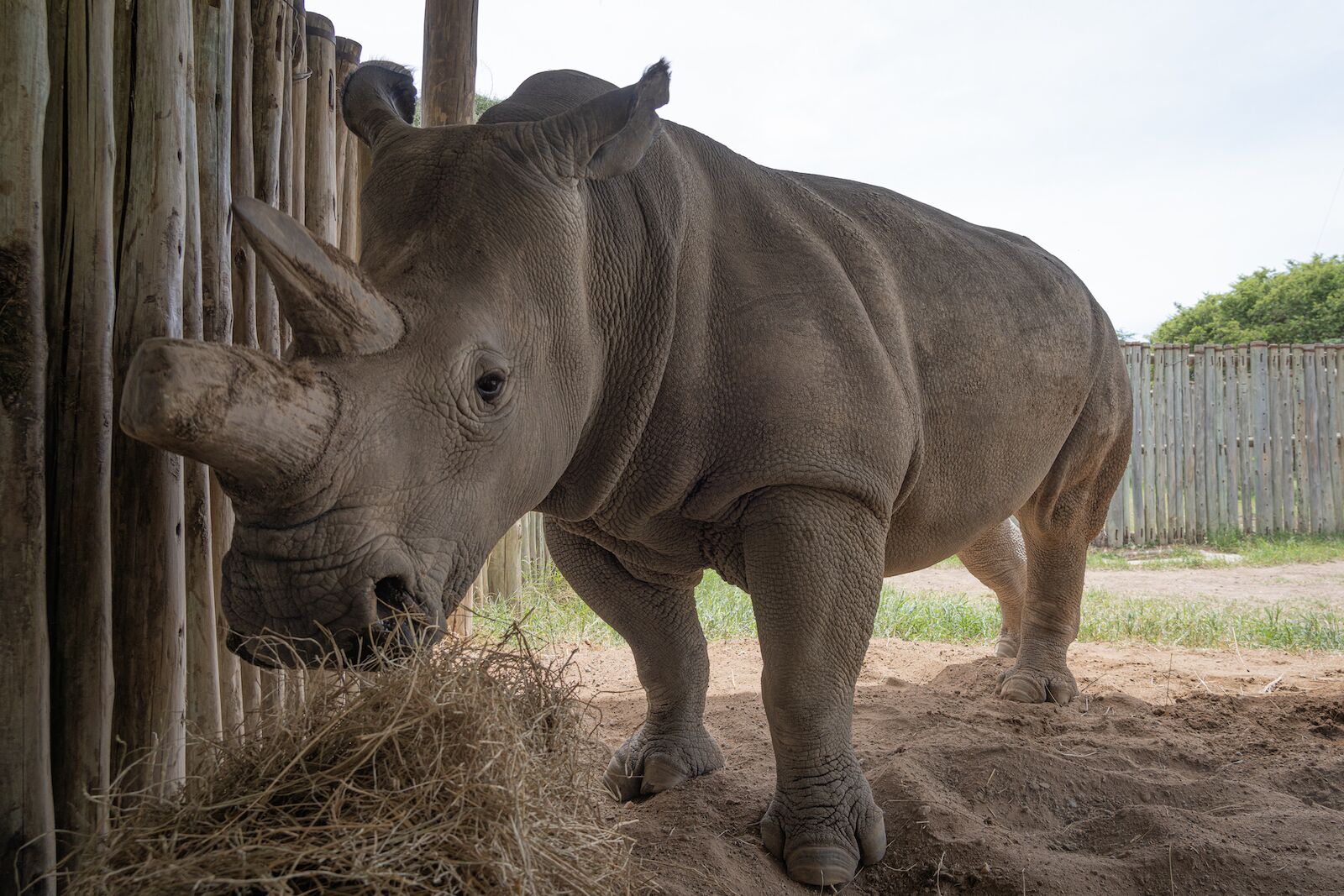After Sudan, the last male northern white rhino, died in 2018, it was up to science to save the species. One project has already made significant progress: BioRescue, which is funded by the German Federal Ministry of Education and Research.
The consortium successfully created two new northern white rhino embryos between October 2021 and February 2022. This brings the total up to 14 northern white rhino embryos. Northern white rhino Fatu at Ol Pejeta Conservancy in Kenya provided the oocytes (egg cells). Then the eggs traveled to Avantea laboratory in Italy to mature and be inseminated. The embryos were then cryopreserved and will eventually be supported by southern white rhino female surrogates.


